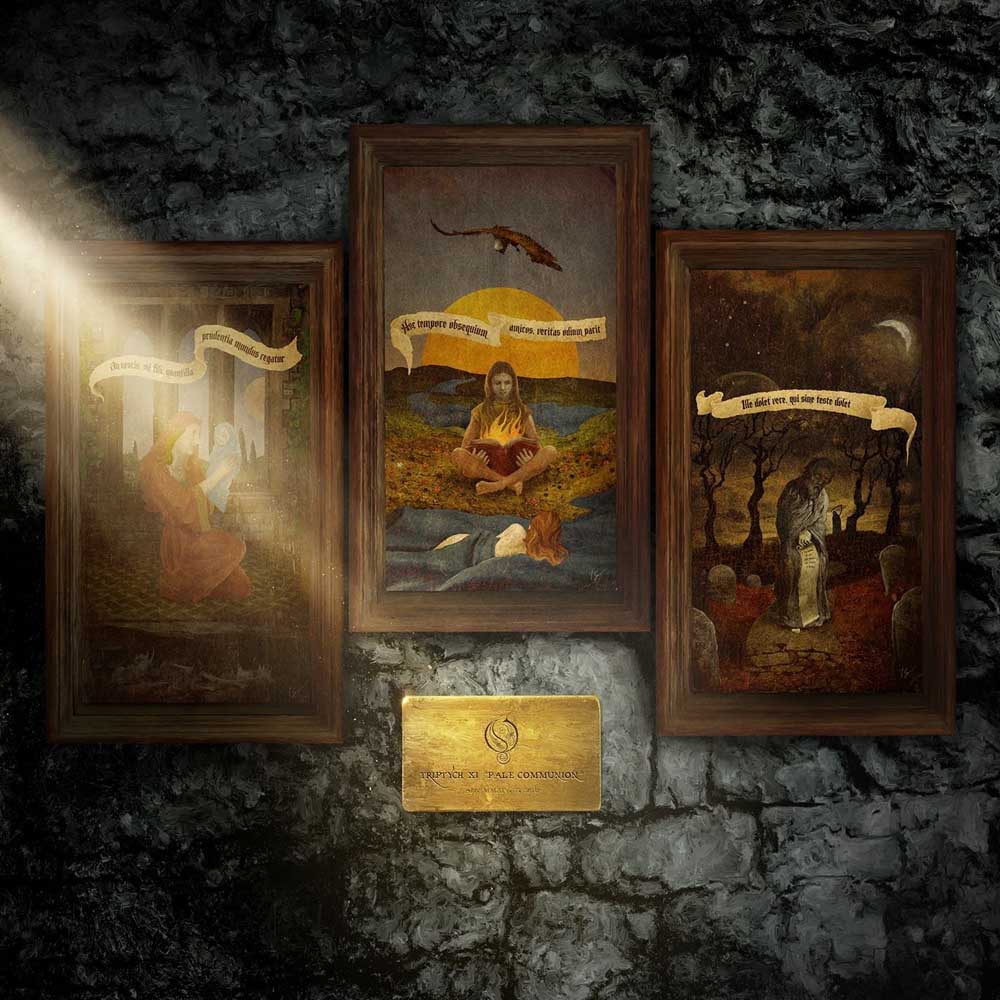No Headline
Published 12:00 am Friday, September 12, 2014

- Opeth, "Pale Communion"
Banks
“GODDESS”
Harvest Records
Romance demands warning labels on “Goddess,” the debut album by Jillian Banks, the Los Angeles songwriter who simply calls herself Banks. “What if I said I would break your heart?/ What if I said I had problems that made me mean?” she sings in “You Should Know Where I’m Coming From,” a dark piano hymn, then adds, “Maybe you can see that I just may be too crazy to love.” In “Alibi,” surrounded by synthesizer chords and twitchy programmed percussion, she realizes, “Something so warm turned out to be/Something that I should’ve known would be the death.”
In Banks’ songs, love is a desperate compulsion, a brutal addiction, a chance at fleeting comfort that’s likely to be followed by drawn-out psychological warfare. She portrays it from all sides: as the woman who knows her boyfriend is unjustly tearing her down but promises him “I’ll change I swear,” in “Change”; as a woman increasingly resentful of her lover’s dishonesty in “Drowning”; and, in “Goddess,” as someone gloating that a man should have treated the woman who left him as a goddess rather than a target.
The foundation of her music, which is most obvious in “You Should Know Where I’m Coming From,” is Fiona Apple’s somber, slow-chorded piano ballads, full of heartache, accusation, self-doubt and inward rage. But Banks has found a newer, richly compatible setting for her seething melancholy: the disembodied, suspended-time synthesizers of what has been labeled minimal R&B or future soul.
Banks emerged fully formed in 2013, with two EPs (all those songs reappear on the deluxe version of the album), a tour opening for Weeknd and a placement in a lingerie commercial. Fashionable as these productions are, they also suit Banks magnificently. She’s at the center of dramas that are built around her yet leave her isolated and untouched.
“Waiting Game,” a dirge about a “cursed” romance with another musician, was produced by Sohn, who’s a songwriter and singer himself. It begins by setting Banks amid wordless voices and a few sparse piano notes, opens an abyss with deep bass notes, then closes in with suffocating synthesizer chords and whizzing, menacing effects.
A few songs leave behind the programmed habitat; an acoustic guitar, of all things, carries the ballad “Someone New.” But out in a naturalistic realm, supported by the music rather than encased by it, Banks sounds more ordinary. She’s at her best facing down a sterile, indifferent universe.
ON TOUR: Oct. 16 — McMenamins Crystal Ballroom, Portland; www.cascadetickets.com or 800-514-3849.
— Jon Pareles,
The New York Times
Opeth
“PALE COMMUNION”
Roadrunner Records
Over the course of Opeth’s now almost 20-year existence, its roots in death metal slowly began to dissolve in favor of a dynamic, suite-oriented song structure reminiscent of classic progressive rock, a genre favored by magnetic frontman Mikael Åkerfeldt. “Still Life” (1999) and “Blackwater Park” (2001) were the major signposts of this transition, but they were only the beginning. By the time 2005’s labyrinthine masterpiece “Ghost Reveries” came around, Opeth’s brand was perfectly crystallized: suite-like, epic songs that balance the death metal of the band’s early days with both progressive rock and acoustic folk. For “Heritage” to largely forgo the metal end of that sonic was easily construed by many as the group abandoning all of the success it had made in forging one of modern metal’s most distinctive sounds.
“Pale Communion” is the sound of a band slipping comfortably into the rhythms that we’ve come to expect of it. It’s an album that has the ebb and flow of “Blackwater Park” and the Comus-indebted prog of “Heritage.” Listening to “Pale Communion,” it’s much easier to see the shortcomings of “Heritage.”
This isn’t to say, however, that Opeth’s choice to leave behind the heavy riffs and growled vocals isn’t one that leaves many rightly in want for the old days. Losing those elements does necessitate that one shade of the band’s multifaceted style is now gone. But as “Pale Communion” attests, in leaving behind metal, Opeth isn’t limiting its chances for contrast in its songwriting; rather, it is making itself find new ways to make the sonic contrasts it is so well known for. Essentially, with this record, Opeth asks the question: Would you rather be placated by a favorite band with the same (albeit excellent) material album after album, or would you rather have that band take you on a journey, even if it comes with a little risk?
Fans of progressive rock can (rather ironically) be averse to change. On their own, suite-like songs with lots of flashy instrumentation seem impressive, but as Dream Theater’s last several records attest, even too much of that can get boring. Opeth is acutely aware of this, and “Pale Communion” is perhaps the defining document of this group’s ability to make progressive rock feel genuinely progressive.
— Brice Ezell,
PopMatters.com






